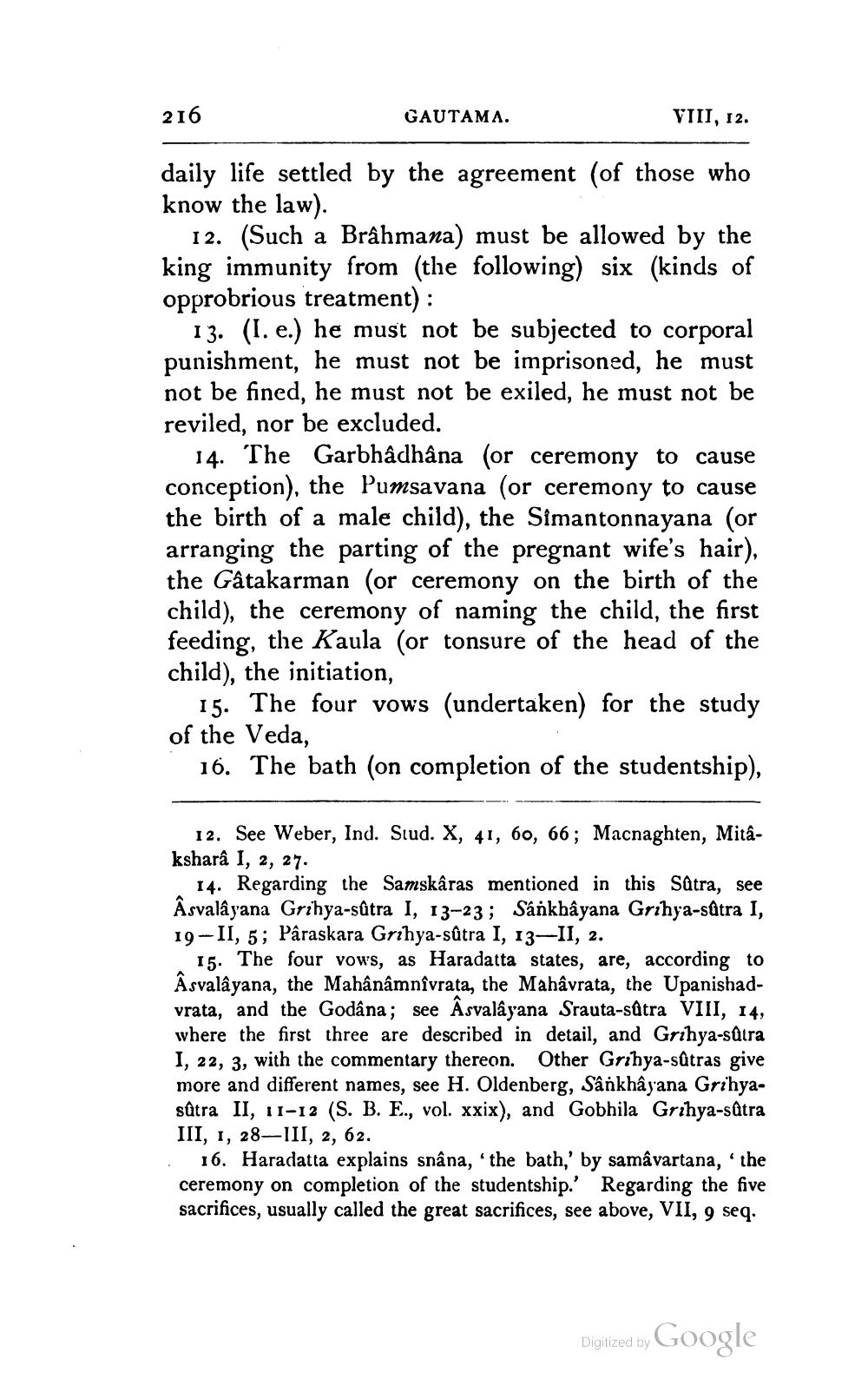________________
216
GAUTAMA.
VIII, 12.
daily life settled by the agreement (of those who know the law).
12. (Such a Brâhmana) must be allowed by the king immunity from (the following) six (kinds of opprobrious treatment):
13. (I. e.) he must not be subjected to corporal punishment, he must not be imprisoned, he must not be fined, he must not be exiled, he must not be reviled, nor be excluded.
14. The Garbhadhâna (or ceremony to cause conception), the Pumsavana (or ceremony to cause the birth of a male child), the Simantonnayana (or arranging the parting of the pregnant wife's hair), the Gâtakarman (or ceremony on the birth of the child), the ceremony of naming the child, the first feeding, the Kaula (or tonsure of the head of the child), the initiation,
15. The four vows (undertaken) for the study of the Veda,
16. The bath (on completion of the studentship),
12. See Weber, Ind. Stud. X, 41, 60, 66; Macnaghten, Mitaksharâ I, 2, 27.
14. Regarding the Samskâras mentioned in this Satra, see Ásvalâyana Grihya-sûtra I, 13-23; Sánkbâyana Grihya-sůtra I, 19-II, 5; Pâraskara Grihya-sûtra I, 13-II, 2.
15. The four vows, as Haradatta states, are, according to Ásvalâyana, the Mahânâmnîvrata, the Mahâvrata, the Upanishadvrata, and the Godâna; see Âsvalâyana Srauta-sâtra VIII, 14, where the first three are described in detail, and Grihya-sûlra 1, 22, 3, with the commentary thereon. Other Grihya-sûtras give more and different names, see H. Oldenberg, Sânkhâyana Grihyasûtra II, 11-12 (S. B. E., vol. xxix), and Gobhila Grihya-sätra III, 1, 28-III, 2, 62. : 16. Haradatta explains snâna, the bath,' by samâvartana, the
ceremony on completion of the studentship.' Regarding the five sacrifices, usually called the great sacrifices, see above, VII, 9 seq.
Digjized by Google




